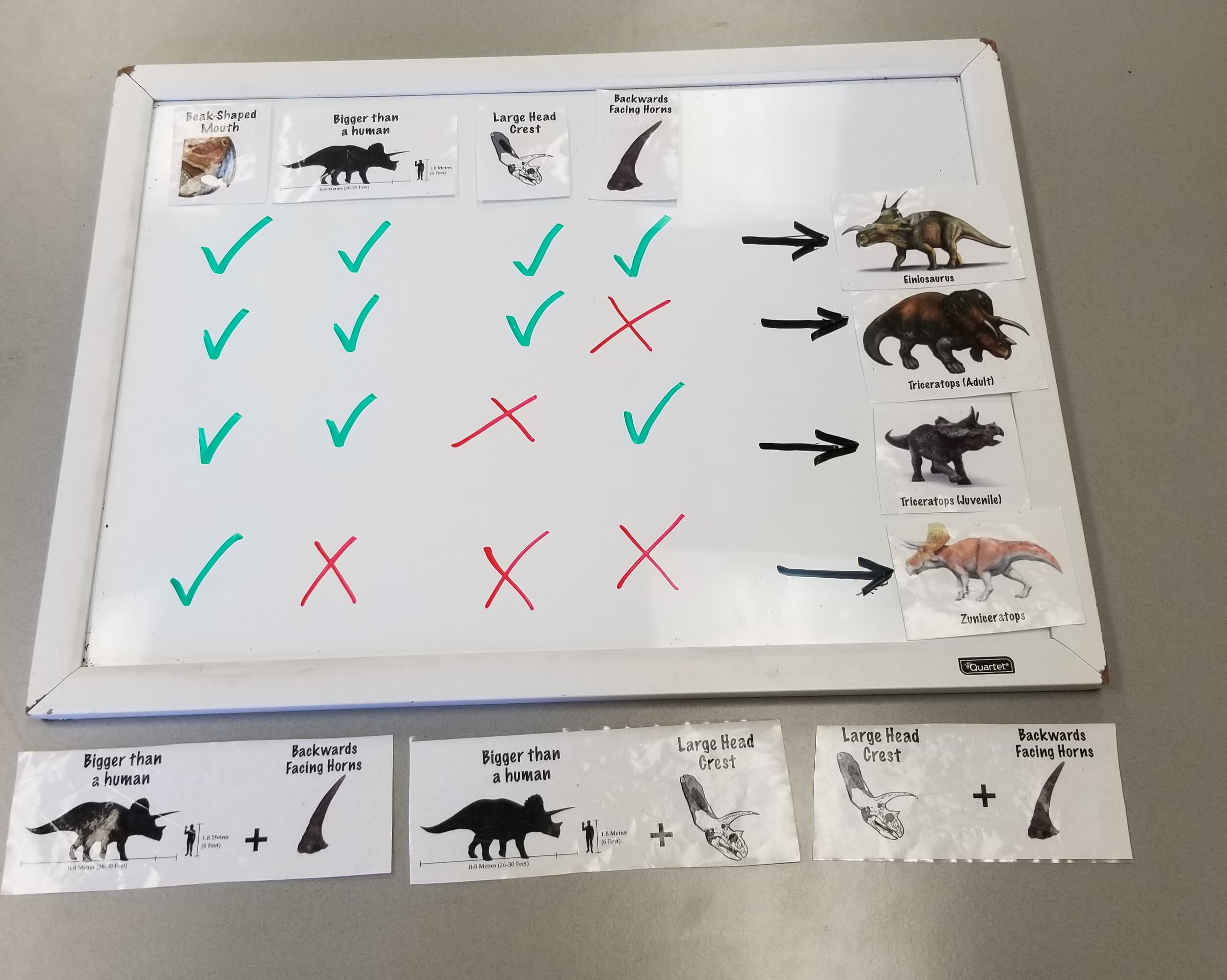Scientific Reasoning Skills
Research suggests that babies as little as a couple of months old are equipped with novice science skills such as experimentation and observation. Starting around 9 months old, children even begin to understand more complex concepts in physics and science such as cause and effect.
In a foundational study, researchers found that infants were surprised when a ball begins to spontaneously move if it was not acted upon by another object or person. This suggests that even babies have a rudimentary understanding of agency and the laws of motion.
More recent research has explored the factors that influence children’s ability to reason about cause and effect. In 2020, Dr. Deena Weisberg at Villanova University investigated whether a familiar context, dinosaurs, could help increase children’s ability to reason through a logic puzzle.
This study included 110 children ages 4-8 years old. They were told a series of facts about dinosaurs. For example, “An Eioniosaurus is a large dinosaur with a beak-shaped-mouth, a large head crest, and a backward-facing horn.” Researchers helped children keep track of this information by putting a green check mark if the dinosaur had the trait and a red X if not.
Then, children were told that paleontologists found a dinosaur fossil that they were pretty sure was one of the dinosaurs because it had two specific traits that were unique to that dinosaur. Children were then asked which two traits made the paleontologist sure they knew which dinosaur they found.
Previous research has demonstrated that younger children, ages 4-6 struggle with these logic tasks, however, these skills develop to almost full maturity by late elementary age. This study revealed that despite the familiar context, young children still struggled to complete the reasoning task, but children ages 7 and 8 performed almost as well as undergraduates and adults.
This research might suggest that formal education plays a role in developing these reasoning skills. Previous studies have found that practicing reasoning skills has positive effects on cognitive skills for both children and adults.
You can help your students practice their reasoning skills by:
invite students to share how they solve problems. Often, if a student gets the correct answer, that is a sufficient demonstration of understanding, however, upon further probing, children and even adults can struggle to articulate their reasoning. Giving students the opportunity to reflect on their own reasoning processes is an important part of learning.
provide opportunities for children to engage in fun reasoning tasks. This could be simple logic puzzles or Sudoku worksheets for when children complete their schoolwork early or rainy day recess games that can be played with friends.

